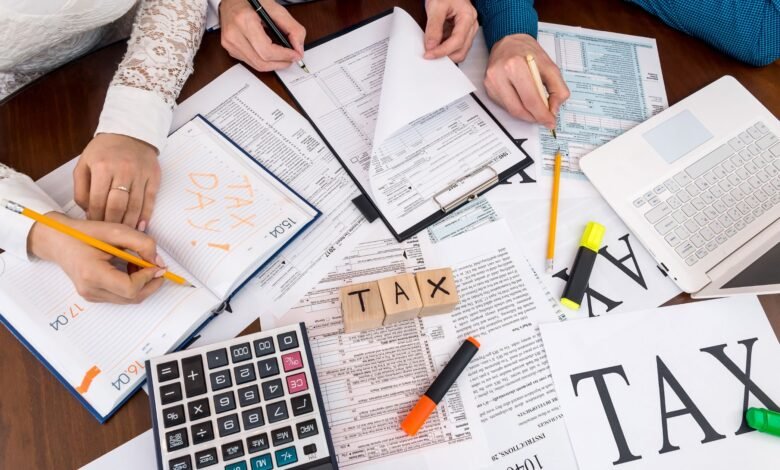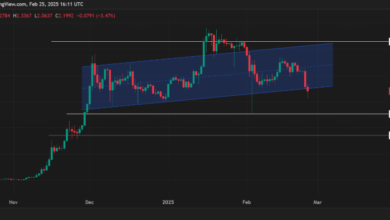Corporate vs. Personal Tax in North York – Know the Difference

Taxes are a part of life, whether you’re running a business or earning a salary. In North York, understanding the difference between corporate and personal tax is key to managing your finances wisely. For businesses, hiring a corporation tax accountant North York can make a huge difference in staying compliant and saving money. This blog will break down the two types of taxes in simple terms, helping you see how they work, what sets them apart, and why knowing this matters for residents and business owners in North York.
What is Corporate Tax?
Corporate tax is the money a business pays to the government based on its profits. If you own a company in North York, whether it’s a small startup or a big corporation, you need to pay this tax. The Canada Revenue Agency (CRA) sets the rules for how businesses calculate and file their taxes. Unlike personal income, which is taxed based on your salary or other earnings, corporate tax is only applied to the money your business makes after expenses.
For example, if your North York business earns $100,000 in revenue but spends $60,000 on rent, salaries, and supplies, you only pay tax on the $40,000 profit. The federal corporate tax rate in Canada is generally 15% for most businesses, but small businesses may qualify for a lower rate, often around 9% on the first $500,000 of taxable income. Ontario also adds a provincial corporate tax, which can range from 3.2% to 11.5%, depending on your business size and income.
Businesses need to file a T2 Corporate Income Tax Return every year, even if they don’t make a profit. Missing deadlines or making mistakes can lead to penalties, which is why many North York companies rely on professional accountants to handle their taxes.
What is Personal Tax?
Personal tax, on the other hand, is what individuals pay on their income. If you live in North York and earn money from a job, freelance work, investments, or other sources, you need to pay personal income tax to the CRA. This tax is based on how much you earn in a year, and the rates go up as your income increases.
In Canada, personal tax rates are progressive. For 2025, the federal tax rates start at 15% for income up to around $55,000 and can go as high as 33% for income over $250,000. On top of that, Ontario has its provincial tax rates, starting at 5.05% and going up to 13.16% for higher earners. Unlike businesses, individuals don’t get to deduct expenses like rent or supplies unless they’re self-employed and have specific business-related costs.
Every spring, North York residents file a T1 Personal Income Tax Return to report their income and calculate what they owe or if they’re due a refund. For many, this process is straightforward, but it can get tricky if you have multiple income sources or claim deductions like RRSP contributions or childcare expenses.
Key Differences Between Corporate and Personal Tax
The most significant difference between corporate and personal tax is who pays it. Corporate tax applies to businesses, while personal tax applies to individuals. But there are other important differences that North York residents and business owners should know.
First, corporate tax is calculated on a company’s profits, not its total revenue. This means businesses can deduct expenses like office rent, employee wages, and marketing costs before paying taxes. Individuals, unless self-employed, don’t have this option. For example, you can’t deduct your grocery bills or home rent from your income tax, but a business can deduct similar expenses if they’re related to its operations.
Second, corporate tax rates are generally lower than personal tax rates, especially for small businesses. A small company in North York might pay a combined federal and provincial tax rate of around 12.2% on its first $500,000 of profit, while an individual earning $100,000 could face a combined tax rate closer to 30%. This is why many North York entrepreneurs choose to incorporate their businesses—to take advantage of lower tax rates and save money.
Third, the filing process is different. Corporate tax returns are more complex because businesses need to track revenue, expenses, and deductions carefully. Personal tax returns are simpler for most people, especially if you’re an employee with a single T4 slip. However, self-employed individuals or those with rental income may find their tax filings almost as complicated as corporate ones.
Finally, corporations have more opportunities to defer taxes. For instance, if a business owner leaves profits in the company instead of paying themselves a salary, they can delay paying personal tax on that money. This strategy, called tax deferral, is a big reason why North York business owners work with accountants to plan their finances.
Why North York Businesses Need Corporate Tax Accountants
Running a business in North York comes with many responsibilities, and taxes are one of the biggest. A corporate tax accountant can help you navigate the complex world of business taxes, ensuring you don’t overpay or miss deadlines. They know the ins and outs of CRA rules, including which deductions your business qualifies for and how to minimize your tax bill legally.
For example, a North York accountant might help a small business claim the Small Business Deduction, which lowers the tax rate on the first $500,000 of income. They can also advise on deductions for things like business meals, vehicle expenses, or home office costs if you work from home. Without professional help, you might miss these opportunities and pay more than you need to.
Accountants also save you time. Preparing a corporate tax return involves gathering financial records, calculating profits, and filling out forms correctly. For busy North York business owners, this can take hours or even days. An accountant handles all of this, letting you focus on growing your business.
Plus, accountants help you avoid costly mistakes. Filing errors or missing deadlines can lead to CRA penalties, which can hurt your bottom line. A professional ensures everything is done right the first time.
How North York Residents Can Manage Personal Taxes
For individuals in North York, personal taxes are usually simpler, but there are still ways to save money and avoid headaches. The key is staying organized and knowing what you can claim. If you’re an employee, keep track of your T4 slips and any receipts for things like medical expenses or charitable donations. These can lower your taxable income.
If you’re self-employed, taxes get trickier. You need to track your income and expenses carefully, just like a business. For example, if you’re a freelance graphic designer in North York, you can deduct costs like software subscriptions, internet bills, or a portion of your rent if you work from home. A tax professional can help you figure out what’s deductible and ensure you’re not missing anything.
Another tip is to contribute to an RRSP. The money you put into an RRSP reduces your taxable income, which can lead to a bigger refund or a lower tax bill. North York residents should also check if they qualify for tax credits like the Canada Child Benefit or the GST/HST credit, which can put extra money in their pocket.
Filing on time is crucial. The deadline for most personal tax returns is April 30, but self-employed individuals have until June 15. Missing these deadlines can lead to penalties, so mark your calendar or work with an accountant to stay on track.
Planning for Both Corporate and Personal Taxes
If you’re a business owner in North York, you likely deal with both corporate and personal taxes. For example, if you own a company and pay yourself a salary or dividends, you’ll pay corporate tax on the business’s profits and personal tax on the money you take home. This is called “double taxation,” but there are ways to minimize it.
One strategy is to work with an accountant who understands both types of taxes. They can help you decide whether to pay yourself a salary or dividends, depending on which is more tax-efficient. They can also advise on how to split income with family members or use tax-advantaged accounts like TFSAs to lower your overall tax burden.
Another tip is to plan. Taxes aren’t something you should think about only at filing time. By keeping good records and reviewing your finances regularly, you can make smart decisions throughout the year to reduce your taxes. For example, a North York business owner might invest in new equipment before year-end to claim a deduction. At the same time, an individual might make an RRSP contribution to lower their tax.
Why North York is a Hub for Tax Expertise
North York is home to many businesses and professionals, which means there’s no shortage of tax accountants to help with corporate and personal taxes. Whether you’re a small business owner or an individual with a complex tax situation, you can find experts who know the local market and CRA rules. Working with someone nearby means they understand the unique needs of North York residents and businesses, from high rental costs to the challenges of running a small company.
Choosing the right accountant is essential. Look for someone with experience in your specific situation—whether it’s corporate tax for a retail store or personal tax for a freelancer. Ask for referrals from other business owners or check online reviews to find someone trustworthy.
Final Words
Understanding corporate and personal tax in North York doesn’t have to be overwhelming. Corporate tax is for businesses, based on profits, with lower rates and more deductions. Personal tax is for individuals, based on income, with fewer ways to save but still some opportunities to claim credits or deductions. Whether you’re a business owner or a resident, working with a tax professional can save you time, money, and stress.
For expert help with your taxes, check out WebTaxOnline. They offer personalized services for both businesses and individuals in North York, making tax season a lot less painful.





